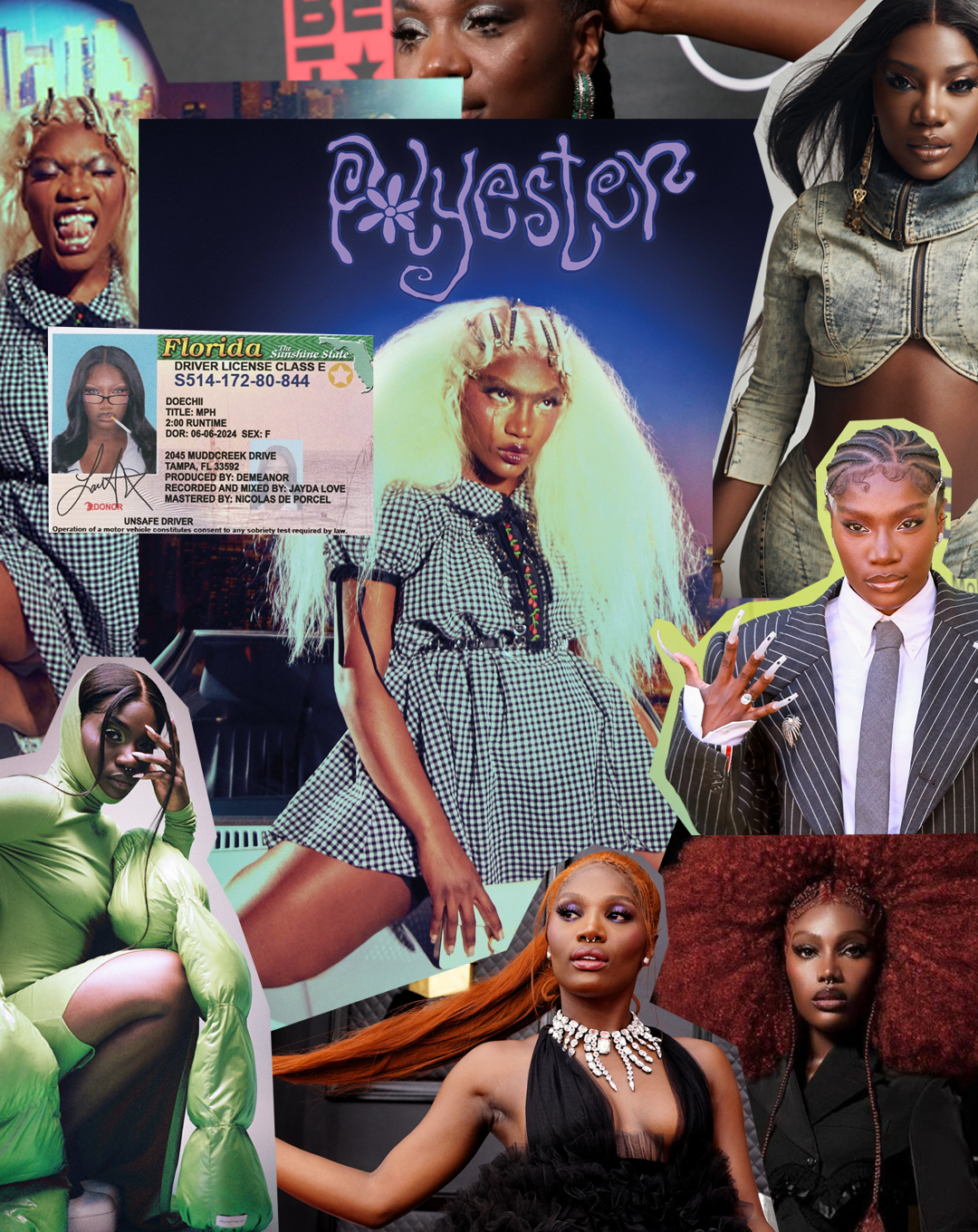Doechii’s Industry Plant Allegations and the Hypocrisy of Hip Hop Heads
Words: Sayou Cooper
Make it stand out
It’s midday in early November and I’m catching up on the afternoon breaking news. It's news to me, but you might recognise it as your Twitter feed, or whatever Elon Musk is failing to rebrand it to. My feed is a mix of porn accounts that will forever keep my account private, colleagues whose writings I either admire and/or envy, and the usual gossip of Rap Twitter. The Grammy Awards have announced nominees for the rap categories and everyone’s talking about Doechii.
The reactions are mixed, considering how competitive 2024 was for the genre and the Grammy’s contentious history with Hip Hop. I was surprised to see Doechii’s tape Alligator Bites Never Heal receive 3 nominations, but that feeling quickly melted into satisfaction, and then comradery. Regrettably, this camaraderie didn’t spread to other Hip Hop heads. As Doechii’s management team ramped up marketing of her mixtape in the months after, instead of Hip Hop welcoming the Swamp Princess, some grew skeptical of her perceived “overnight success”. Doechii’s talent and return to boom bap are categorised as “Harriet Tubman music” which is ironic bearing in mind the year Hip Hop has had — specifically the culture war of Drake versus Kendrick Lamar.
___STEADY_PAYWALL___
If Doechii is not like us, then who is? Conflating the rapper’s more frequent appearance on your social media feed as grounds for her being Hip Hop’s new industry plant is not just daft, but glum. An unfortunate example of misogyny in stan culture and increasing media illiteracy. Culture writer Kyndall Cunningham noted in her article for Vox, “Music journalists began noticing the term 'industry plant' on hip-hop (correct spelling is Hip Hop) message boards in the early 2010s.” What began as an effort from Hip Hop heads to call out inauthentic come-ups and sleazy music label strategies got stolen from Black culture and fed into the mainstream pop culture lexicon. At its best, the term can expose nepotism in the entertainment industry, and why it’s so tough for the average person to make it. At its worst, the term is conspiratorial reasoning as to why you don't like an artist, especially their success.
“Eyes that are never pleased, despite Doechii’s artistry checking off the superficial and changing boxes of being a mainstream female rapper post the 2010s.”
On December 20, after the release of Doechii’s “DENIAL IS A RIVER” performance on the Genius platform with Issa Rae, Senior Manager for Capitol Records’ digital marketing Danielle Nicholson shared some thoughts on her client’s marketing. She tweeted, “Doechii’s mixtape released on 8/30 and we’ve been marketing it nonstop since. When you know something is special, you don’t let up.” Nicholson and the rest of Doechii's management team have simply been playing a long and strategic game.
Since signing as Top Dawg Entertainment's first female rapper in 2022, and opening up for SZA and Doja Cat on their respective tours, Doechii has been here and working. I ventured into the swamp from her music video for "Crazy", and never left. Your failure to see Doechii until now probably reveals something about your Hip Hop credentials and sincere investment in women in this genre. It makes sense after the Grammy nominations were released, that Doechii’s team would drastically ramp up marketing. For better or worse, all of Hip Hop's eyes are on her right now.
Eyes that are never pleased, despite Doechii’s artistry checking off the superficial and changing boxes of being a mainstream female rapper post the 2010s. Arbitrary checkboxes that include not rapping about sex too much or they won’t take you seriously. A hyper-feminine image because, unlike your male colleagues, no one will listen to you if you’re not conventionally attractive.
In December, a tweet from a stan account circulated that fueled further bad-faith discourse on Doechii. It stated, “Making those Harriet Tubman music is the cheat code to getting respected in rap…..” When doom scrolling on social media you kind of get used to stupidity and choosing to course correct is based on your discrepancy. For a while, I didn’t engage in the tweet or the frustrating online conversations that ensued. It felt so explicitly anti-Black; colourism directed at Doechii that I couldn’t fathom why others weren’t coding it as such.
The more I sat with my inaction, the more guilty I felt — maybe cowardly is the better word. Cognisant of the fact I’m not a dark skin Black woman, and also hyper aware of the ways I have engaged in colourism. My pre-woke era, a cog in the imperialist white supremacist capitalist patriarchy.
As some have rightfully pointed out, there is no cheat code for dark skin women in Hip Hop. Even with Alligator Bites Never Heal’s sound and imagery - like Doechii’s braids and beads being distinctly Black and rooted in the core foundations of Hip Hop - it’s somehow become a detriment. A drawback that her colleague Kendrick Lamar is unanimously (except for a few Drake stans) revered for.
From an Apple Music interview with Ebro Darden, Doechii noted, “There is importance in tradition. I feel like it is important for us to uphold the heart of Hip Hop, which is lyrical composition, it is skill, it is wittiness, but it is also talking about our feelings. Being honest about what we’re going through and connecting us as people. I want to take us back to this classic space in Hip Hop, and just remind people of the traditional routes of where this started.” The problem with Doechii isn’t her sound, identity, or label, it’s us. Righteous rap consumers who complain about the state of Hip Hop insistently, but never take the first step to fix it. Desperately looking for a change, but avoidant when it finally appears.


